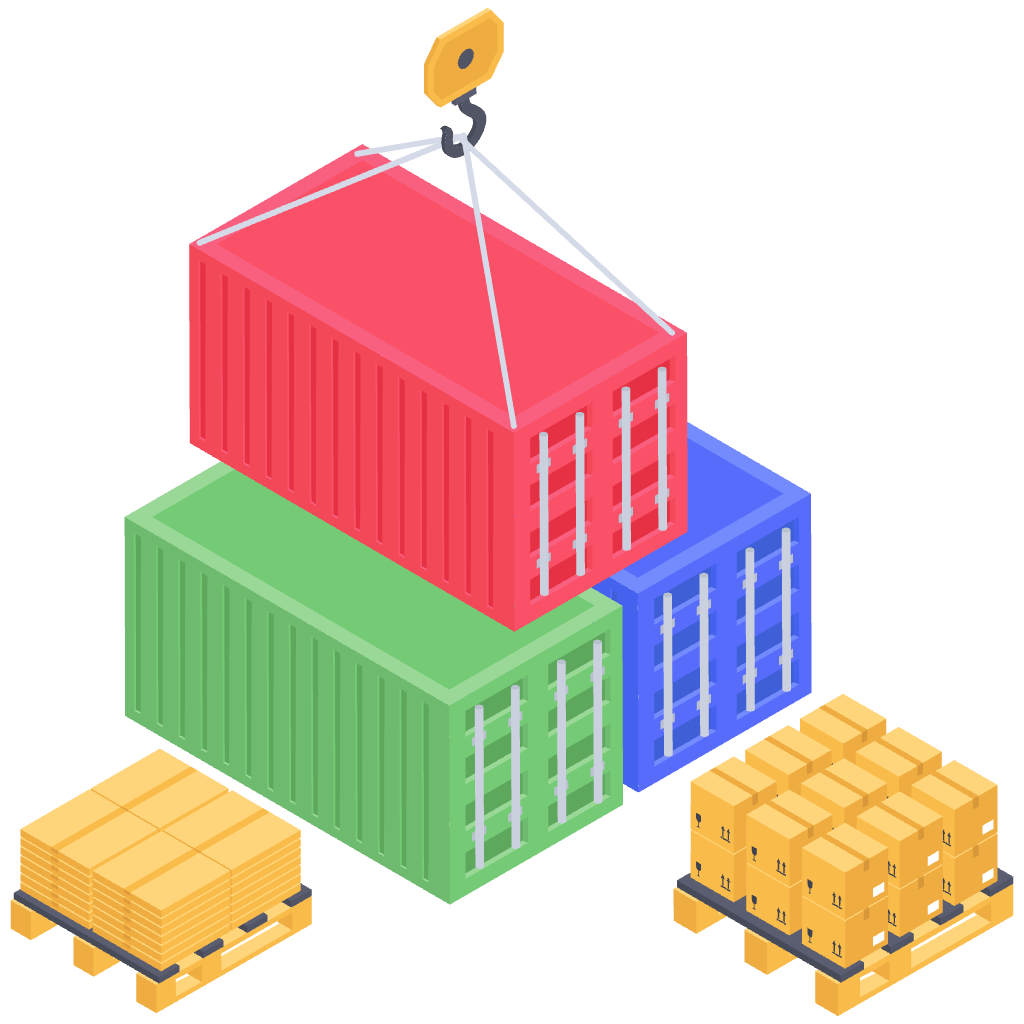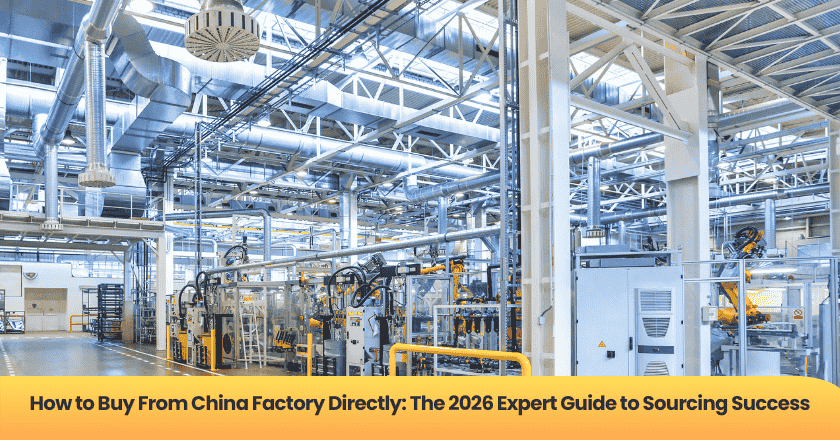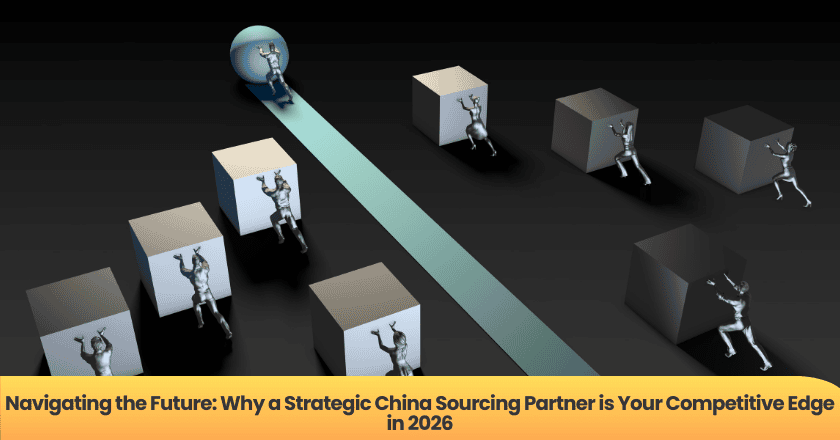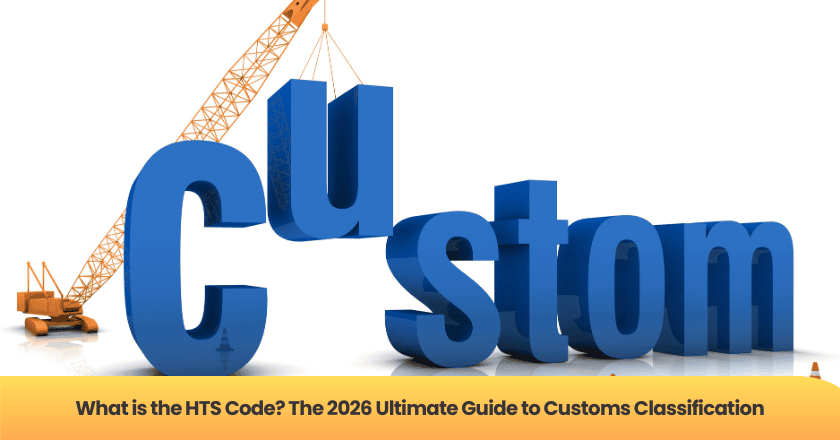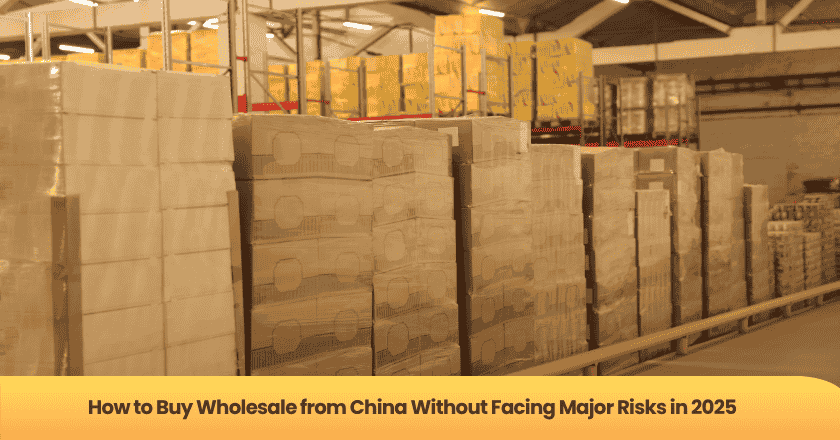
When I buy wholesale from China, I face a dynamic market with significant opportunities and serious risks. In 2025, wholesale imports from China remain at record highs, with categories like electrical machinery, apparel, and toys dominating global trade.
I know that buying wholesale from China requires careful planning and proven strategies. Always prioritize supplier reliability and product quality to safeguard my business from unnecessary risks.
Key Takeaways
- Always verify suppliers before making purchases. Check business licenses and request samples to ensure reliability.
- Prioritize product quality by requesting samples and conducting inspections. This helps avoid costly mistakes later.
- Use secure payment methods like trade assurance and escrow. These options protect your money and build trust with suppliers.
- Understand shipping terms and work with reliable freight forwarders. This reduces risks and ensures smooth delivery.
- Build strong relationships with suppliers through clear communication and regular updates. This fosters trust and cooperation.
Selecting Suppliers
Selecting suppliers is the foundation of safe and successful sourcing in the China wholesale market. I always approach this step with careful research and a systematic process. My goal is to find reliable wholesale suppliers who can deliver consistent quality and meet my business needs.
Find Wholesale Suppliers in China
When I start sourcing goods from China, I use several proven strategies to find wholesale suppliers in China:
- I browse online platforms, such as buying from Alibaba, to access a wide range of supplier options.
- I attend trade shows to meet suppliers face-to-face and evaluate their products directly.
- I check supplier directories that list verified contacts, which helps me avoid untrustworthy sources.
- I communicate clearly with potential suppliers and verify their credentials before moving forward.
- I place small trial orders to test reliability and build trust before committing to larger purchases.
Tip: Starting with small orders reduces risk and helps me gauge the supplier’s performance before scaling up.
I know that finding a reliable supplier list is crucial for a successful supply chain. I always verify suppliers to ensure quality and compliance. Building relationships with suppliers reduces risks and streamlines my operations. Sourcing products from verified suppliers in China gives me access to lower Chinese supplier costs, high-quality goods, and the ability to scale my business efficiently. By working with trusted manufacturers, I avoid common pitfalls like product defects and delayed shipments.
Verifying Legitimacy
I never skip the verification process when buying direct from a wholesaler. Scams are common in the wholesale business, so I stay vigilant. Here are some red flags I watch for:
- Legitimate suppliers use business bank accounts; I avoid anyone requesting payment to a personal account.
- Fake suppliers may set up storefronts without real products.
- I always request samples; refusal to provide them signals a scam.
- I rely on Alibaba’s verification system and avoid unverified suppliers.
- I remain cautious with trading companies, as they often act as middlemen and may not represent actual manufacturers.
I also consider cultural factors. In my experience, some suppliers in China may overpromise or deliver products that are “close enough” rather than exact, a concept known as ‘Chabuduo’. This can impact product quality if I do not set clear expectations.
To verify legitimacy, I use a checklist based on industry best practices:
| Criteria | Description |
|---|---|
| Business License | I verify the company's official registration using the 18-digit USCC or full company name. |
| Quality Certifications | I request certifications like ISO 9001 to ensure compliance with market standards. |
| Operational Capability | I assess experience, equipment, and financial stability to confirm order capacity. |
| Bank Account Verification | I ensure the bank account matches the company name on the business license. |
| Specialized Manufacturing | I prefer suppliers focused on specific product categories. |
| Official Documentation | I obtain and validate legal documents for registration and export authorization. |
| Business Scope | I check the business license for terms like 'manufacture' to confirm factory status. |
| Export Capability | I verify the ability to issue VAT invoices for export drawbacks. |
Ensuring Product Quality
When I buy wholesale from China, I always prioritize product quality. I know that skipping steps in the quality assurance process can lead to costly mistakes. I have learned that a systematic approach helps me avoid common pitfalls and ensures that my business receives reliable goods.
Requesting Samples
I never finalize an order without requesting samples first. Samples allow me to evaluate the actual product before committing to a large purchase. I check for consistency in color, material, and functionality. I compare the sample to my specifications and confirm that the supplier understands my requirements. If the sample does not meet my standards, I reconsider choosing products from that supplier.
Tip: Always request samples from multiple suppliers in China. This gives me a clear comparison and helps me identify the best option for my business.
I also use samples to test packaging and labeling. This step ensures that the final shipment will meet my expectations and comply with regulations in my target market.
Quality Control
I rely on a robust quality control process to safeguard my orders. I work with quality experts who oversee production and monitor every stage. These professionals guarantee that the goods meet the required standards and cover any losses due to quality issues.
Here is a table summarizing the most common quality issues reported by buyers of Chinese wholesale products:
| Quality Issue | Description |
|---|---|
| Lack of Product Inspection and Quality Control | Many buyers skip inspections, leading to defects discovered too late. Implementing a robust quality control process is essential. |
| Inadequate Supplier Due Diligence | Not all suppliers are reliable; verifying business licenses and conducting factory audits is crucial. |
| Focusing Too Much on Price Over Quality | Choosing the cheapest option can result in poor quality; considering total cost of ownership is important. |
I always verify that suppliers have the necessary certifications and experience. I check business licenses and conduct factory audits. I avoid focusing only on price, since low-cost options often compromise quality. I consider the total cost, including potential losses from defective goods.
Third-Party Inspections
I often use third-party inspection services in China to add another layer of protection. These inspections provide enhanced quality assurance and help me mitigate risks. Inspectors check compliance with standards and verify that suppliers deliver what they promise. I find this approach cost-effective, especially for large orders.
- Enhanced quality assurance
- Risk mitigation
- Compliance with standards
- Cost-effectiveness
- Improved supplier relationships
Continuous inspections and audits help me build stronger relationships with suppliers. They ensure accountability and transparency throughout the production process. I know that language and cultural barriers can sometimes affect inspection outcomes. Variability in product quality and logistics challenges also exist. I choose reputable inspection agencies to minimize these risks.
1. Quality improvement
2. Compliance and risk management
3. Supply chain efficiency
Note: Third-party inspections are not foolproof. I stay involved in the process and communicate clearly with suppliers to ensure my standards are met.
By following these steps, I maintain control over product quality and protect my business from unexpected issues. I always make quality a priority when choosing products from China.
Safe Payment Methods
When I buy wholesale from China, I always pay close attention to payment safety. Choosing the right payment method protects my business and builds trust with suppliers. I have learned that using secure options and understanding the risks can make a big difference in every transaction.
Recommended Payment Options
I always compare payment methods before sending money to suppliers. Each option has its own benefits and challenges. Here is a table that summarizes the most common payment methods I use for wholesale transactions with suppliers in China:
| Payment Method | Features/Benefits | Challenges/Costs |
|---|---|---|
| Wise Business | Low fees, transparent exchange rates, high Trustpilot rating | None |
| International Wire | Reliable for large sums, fast (1-2 business days) | Higher fees compared to other methods |
| Global ACH | Efficient, reduced costs for regular payments | None |
| PayPal Business | Easy to use, widely accepted, instant processing | Small percentage fees, currency conversion |
| Credit Cards | Convenient, potential rewards, widely accepted | Foreign transaction fees, security risks |
I often use Wise Business for its low fees and clear exchange rates. For larger wholesale orders, I rely on international wire transfers, even though they cost more. PayPal Business and credit cards are convenient, but I stay aware of extra fees. Global ACH works well for regular payments to suppliers.
Escrow and Trade Assurance
I never skip protection when paying suppliers in China. Escrow and trade assurance programs give me peace of mind. These services hold my payment until I confirm that the goods meet my expectations. Trade assurance badges show that suppliers have passed verification, which boosts my confidence.
| Feature | Description |
|---|---|
| Trade Assurance badge | Shows supplier credibility and verification. |
| Escrow payment | Holds funds until I confirm receipt and satisfaction. |
| Third-party inspection | Lets me check product quality before shipment. |
| Price lock-in protection | Keeps original pricing and specs, with mediation if needed. |
| On-time Delivery Guarantee | Offers compensation if suppliers deliver late. |
I always look for suppliers who offer trade assurance. These programs protect my payments and help resolve disputes. I use third-party inspections to check quality before releasing funds. This process reduces the risk of counterfeit or substandard goods.
Avoiding Payment Fraud
- stay alert to payment fraud when dealing with wholesale suppliers in China. Scammers use several tricks to steal money. Here are some warning signs I watch for:
- Suppliers insist on 100% advance payment without secure options like escrow or trade assurance.
- The payment recipient changes at the last minute.
- Suppliers only accept payment through Western Union, which leaves no paper trail.
- I never send wire transfers to personal accounts.
- Some scams go undetected until the payment stage, so I double-check all details.
Tip: I always use secure payment methods and avoid any supplier who refuses to negotiate safe terms.
By following these steps, I protect my business and ensure every wholesale transaction with suppliers in China is safe and reliable.
Managing Shipping Risks
Shipping products from China presents unique supply chain risks that I always address before finalizing any order. I know that careful planning and the right partners help me avoid costly mistakes and delays.
Reliable Freight Forwarders
- choose freight forwarders who understand the complexities of shipping from China. My selection process includes several key factors:
- Expertise in logistics and international shipping
- Ability to handle customs clearance efficiently
- Importance of proper documentation for every shipment
- Good customer service and transparency throughout the process
- find that working with experienced freight forwarders reduces the risk of delays and miscommunication with suppliers. Reliable partners keep me informed and help me navigate regulations.
Understanding Incoterms
Incoterms define the responsibilities of suppliers and buyers during international shipping. I always clarify these terms before placing an order.
The table below summarizes how different Incoterms affect risk and responsibility when shipping products from China:
| Incoterm | Seller's Responsibility | Buyer's Responsibility |
|---|---|---|
| EXW | Goods ready for pickup | All costs and risks from pickup onward |
| FOB | Goods loaded onto the ship | Costs and risks from loading onward |
| CIF | Shipping costs and insurance until destination port | Customs duty and unloading costs at destination |
| DDP | All costs and risks until delivery | Unloading costs at final destination |
| DAP | All costs and risks until delivery to buyer's location | Customs fees and unloading costs at destination |
| CFR | Shipping costs until destination port | Risks from loading onto the ship onward |
| CIP | Shipping costs and insurance until destination | Risks after unloading at destination |
| FAS | Goods delivered alongside the ship | Costs and risks from loading onto the ship onward |
| CPT | Shipping costs until destination | Insurance and unloading costs at destination |
I prefer CIP or DDP for most shipments. These terms minimize my exposure to supply chain risks and ensure that suppliers take responsibility until the goods reach my location.
Insurance
I never ship goods from China without proper insurance. Marine cargo insurance protects my investment against damage, theft, and delays. I select coverage based on the type of products and the value of each shipment. The table below highlights recommended insurance types for international shipments:
| Insurance Type | Description |
|---|---|
| Excess Cargo Insurance | Provides additional coverage for cargo exceeding basic insurance limits. |
| International Cargo Insurance | Protects cargo during international shipping, covering various shipping risks. |
For fragile items, I add damage insurance. High-value shipments require theft insurance. Delay insurance helps me recover losses if my business suffers from late deliveries. I always discuss insurance options with my suppliers to ensure full protection.
Legal Protection
When I import products from China, I always prioritize legal protection. I know that clear contracts, compliance with regulations, and safeguarding intellectual property help me avoid costly disputes with suppliers.
Contracts
I never proceed with an order unless I have a solid contract in place. I insist on bilingual contracts, signed and stamped by both parties. This ensures that both I and my suppliers understand every detail. I include quality control clauses, detailed quotes, and clear payment terms. I also specify shipping terms and responsibilities for customs clearance.
Here is a table that summarizes the essential contract terms I always include:
| Essential Contract Terms | Description |
|---|---|
| Bilingual Contracts | Always get contracts in both English and Chinese, signed and stamped. |
| Quality Control Clauses | Specify quality control processes and acceptable error rates. |
| Detailed Quotes | Break down all costs, including materials and labor. |
| Payment Terms | Clearly discuss deposits and balance payments. |
| Shipping Terms | Agree on shipping terms and customs responsibilities. |
Tip: I document every aspect of the agreement and seek guarantees on product specifications to protect my interests.
Import/Export Regulations
I stay updated on the latest import and export regulations before starting the importing process. In 2025, tariffs on Chinese goods remain high, especially for electronics, machinery, and furniture. I always calculate the total duty rate and factor it into my costs.
I know that Section 301 tariffs target unfair business practices. Duties on most Chinese goods now reach about 30%, with some sectoral variations. I always prepare for customs checks and ensure all documents are accurate to avoid delays.
Intellectual Property
Protecting my intellectual property is crucial when I work with suppliers in China. I register my trademarks, patents, and copyrights in China before I import. I use NNN agreements to prevent misuse of my product designs. I only work with reputable suppliers and sometimes separate production steps to reduce the risk of copying. I monitor online marketplaces for infringement and act quickly if I spot any issues. Consulting with Chinese IP professionals helps me enforce my rights.
Note: I never underestimate the importance of legal protection when importing from China. Careful planning shields my business from unnecessary risks.
Common Mistakes
When I buy wholesale from China, I see many buyers repeat the same common mistakes. These errors can lead to lost money, wasted time, and damaged business relationships. I always remind myself to avoid these pitfalls and follow a proven process.
Ignoring Supplier Verification
One of the most common mistakes is skipping supplier verification. Many buyers trust suppliers without checking their background. I have learned that this can result in scams or poor-quality products. I always check business licenses, request samples, and confirm that suppliers have a real factory. On-site audits help me see the actual production environment. I also verify compliance with market regulations. This step protects me from legal issues and ensures that suppliers can deliver what they promise.
Focusing Only on Price
Another common mistake is focusing only on price. I used to think that the lowest price meant the best deal. In reality, cheap products often come with hidden costs. Poor quality, missed deadlines, and extra fees can hurt my business. I now compare total value, not just price. I test samples for durability and functionality before placing large orders. I also track supplier performance over time. This approach helps me build long-term partnerships with reliable suppliers in China.
Poor Communication
Poor communication is a frequent cause of problems when sourcing from China. Many buyers assume that suppliers understand their needs without clear instructions. I always provide detailed specifications and confirm every detail in writing. I avoid misunderstandings by using simple language and asking for regular updates. Performance tracking keeps suppliers accountable and helps me spot issues early. I also use third-party inspections to ensure that products match approved samples before shipment.
Tip: Avoid wiring 100% of the payment upfront. A 30% deposit is standard practice and reduces risk.
By learning from these common mistakes, I improve my sourcing process and protect my business. I stay proactive, communicate clearly, and verify every step when working with suppliers in China.
Building Relationships
Building strong relationships with suppliers in China has always been a top priority for me. I know that trust and open communication form the backbone of every successful wholesale partnership. Over the years, I have developed a process that helps me build lasting connections and ensures consistent results.
Effective Communication
I always prioritize clear and regular communication with my suppliers. I document all technical details and agreements in both English and Chinese. This practice prevents misunderstandings and provides a reference if disputes arise. I use tools like WeChat and video calls to maintain contact and schedule regular updates on production progress. I also pay attention to cultural differences. Understanding business etiquette in China, such as respecting hierarchy and showing patience during negotiations, helps me build trust and rapport.
Tip: I engage proactively and provide constructive feedback to my suppliers. This approach encourages open dialogue and continuous improvement.
Starting Small
When I begin working with new suppliers in China, I always start with small orders. This strategy allows me to test their reliability and product quality without taking on too much risk. I use these initial transactions to evaluate how well the supplier communicates, meets deadlines, and handles feedback. If the supplier performs well, I gradually increase order sizes and deepen the partnership. I also arrange site visits when possible. Meeting face-to-face demonstrates my commitment and helps establish trust, which is highly valued in Chinese business culture.
- Place small trial orders to assess supplier performance.
- Evaluate communication and responsiveness.
- Arrange site visits to strengthen relationships.
Monitoring Performance
I believe that continuous monitoring is essential for maintaining high standards. I schedule regular audits and inspections to catch any changes in supplier performance that could affect product quality. I track key metrics over time, such as defect rates and on-time delivery. This data helps me spot trends and address problems before they escalate. I also use third-party inspection services for impartial assessments. By staying involved and providing feedback, I ensure that my suppliers in China remain accountable and committed to our shared goals.
- Conduct regular quality audits and inspections.
- Track supplier performance metrics over time.
- Use third-party inspections for unbiased evaluations.
Note: Building strong relationships with suppliers in China takes time and effort, but it pays off with better cooperation, fewer surprises, and long-term success.
Buy Wholesale from China with NewbuyingAgent
AI-Driven Sourcing
When I buy wholesale from china, I rely on advanced AI-driven sourcing to identify the best suppliers. This technology analyzes market trends and recommends high-demand products, helping me stay ahead of competitors. I use AI insights to select suppliers who offer consistent quality and competitive pricing. The system streamlines supplier selection, reducing the time I spend searching for reliable partners. I find that AI-driven sourcing minimizes risk and increases my confidence when I buy wholesale from china.
Cost Savings
I always look for ways to maximize cost savings when I buy wholesale. NewbuyingAgent provides several strategies that help me cut expenses and improve my margins.
Quality Guarantee
Quality assurance remains my top priority when I buy wholesale from china. I trust NewbuyingAgent to manage end-to-end quality control, from supplier selection to final delivery. The service provides full compensation for any quality issues, giving me peace of mind. I rely on a network of experts who monitor production and inspect goods before shipment.
I appreciate the integrated logistics and trade expertise that simplify my wholesale sourcing. The procurement and distribution support helps me manage suppliers and shipments efficiently. I rely on seamless cross-border control to ensure my products reach global markets without complications.
Tip: When I buy wholesale from china, I always choose a sourcing solution that offers end-to-end management and a quality guarantee. This approach protects my business and builds trust with suppliers.
When I focus on buying wholesale from china, I follow a clear process to reduce risk. I always verify suppliers, check product quality, use secure payment methods, and manage shipping carefully. I protect my business by understanding legal requirements in china. Buying wholesale from China becomes safer when I apply these steps.
Take action now. Use these strategies to build a strong and reliable supply chain.
FAQ
What is the safest way to verify a supplier in China?
Check business licenses and request samples. Visit factories when possible. Use third-party inspection services to confirm legitimacy. I never rely on online profiles alone.
How do I avoid common payment scams?
Use secure payment methods like wire transfers and trade assurance. Never send money to personal accounts. I confirm payment details with the supplier before transferring funds.
What documents do I need for importing products?
Prepare commercial invoices, packing lists, and certificates of origin. Check import regulations for my country. I keep all paperwork organized for customs clearance.
How can I ensure product quality before shipping?
Request samples and conduct inspections during production. Hire third-party inspectors for final checks. I compare products to my specifications and communicate clearly with suppliers.
What should I do if my shipment is delayed?
Contact my freight forwarder immediately. Review shipping documents for errors. Track the shipment online. I discuss solutions with the supplier to prevent future delays.
Get Started Today
Let's Turn Your Sourcing Goals into RealityWeChat:+86 15157124615
WhatsApp:+86 15157124615
Address:Building 10 #39 Xiangyuan Road, Hangzhou, China
